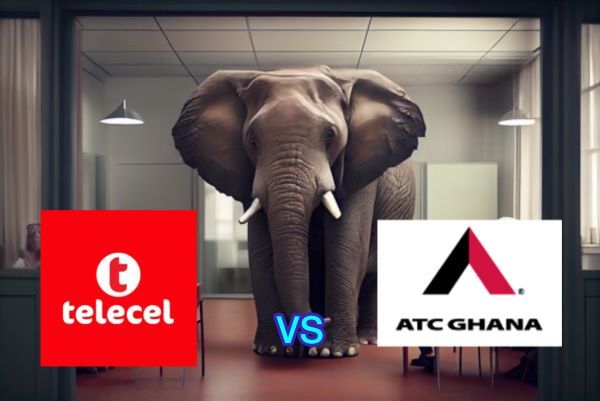Recently, Ghana’s leading independent telecoms tower company, ATC Ghana, disconnected Telecel Ghana equipment on some tower co-location sites. The reason they gave for their action was non-payment of electricity and fuel bills by Telecel, and ATC’s inability to continue footing that bill on behalf of Telecel.
To every story, however, there are at least two sides. So, as was expected, less than an hour after ATC stoke the fire, Telecel sent some hail and brimstone the way of ATC describing their allegation as “utterly false”. In fact, they even issued a subtle legal threat on anyone who goes on the back of ATC’s allegations and does anything that negatively impacts the Telecel brand.
So, as we have always done, Techfocus24 went behind the two statements and dug deeper to find out what exactly led to ATC deciding to target Telecel Ghana for its unplugging move this time round. You would recall that in 2022, ATC selected Surfline and Busy Ghana and unplugged them, even though at the time AirtelTigo (now AT Ghana) and Vodafone Ghana (now Telecel Ghana) owed ATC more money than Surfline and Busy Ghana did. ATC’s explanation then was that there were ongoing negotiations with AirtelTigo and Vodafone at the time, but all avenues had been exhausted with Surfline and Busy Ghana. The two ISPs had a different story to tell, but their stories did not make much difference.
So, it appears ATC picks and chooses who to unplug at what time when it suits them. But to better understand what led to them choosing Telecel this time round, even though AT Ghana owes them more money than Telecel does, we need to go back to the beginning of tower sharing in Ghana.
Years ago, when Ghanaians started complaining about telecom towers emitting radioactive radiations into our communities, the National Communications Authority (NCA) decided that, even though there was no scientific basis for those complaints, all telcos should compulsorily opt for tower sharing (co-location), just to allay the fears of Ghanaians.
That policy was also strategic, because it meant telcos and ISPs (internet service providers) will no longer have to spend so much money mounting their own towers to provide connectivity. They can mount their antennas on each other towers. The first option for even new entrants is to explore co-location towers before even considering mounting their own towers.
Source: tech24
| Disclaimer: Opinions expressed here are those of the writers and do not reflect those of Peacefmonline.com. Peacefmonline.com accepts no responsibility legal or otherwise for their accuracy of content. Please report any inappropriate content to us, and we will evaluate it as a matter of priority. |
Featured Video












